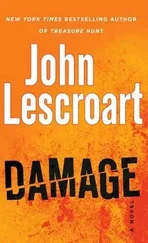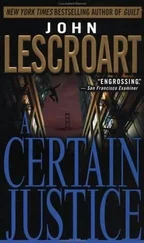John Lescroart - Son of Holmes
Здесь есть возможность читать онлайн «John Lescroart - Son of Holmes» весь текст электронной книги совершенно бесплатно (целиком полную версию без сокращений). В некоторых случаях можно слушать аудио, скачать через торрент в формате fb2 и присутствует краткое содержание. Год выпуска: 2003, ISBN: 2003, Издательство: New American Library, Жанр: Старинная литература, на русском языке. Описание произведения, (предисловие) а так же отзывы посетителей доступны на портале библиотеки ЛибКат.
- Название:Son of Holmes
- Автор:
- Издательство:New American Library
- Жанр:
- Год:2003
- ISBN:9780451208750
- Рейтинг книги:4 / 5. Голосов: 1
-
Избранное:Добавить в избранное
- Отзывы:
-
Ваша оценка:
- 80
- 1
- 2
- 3
- 4
- 5
Son of Holmes: краткое содержание, описание и аннотация
Предлагаем к чтению аннотацию, описание, краткое содержание или предисловие (зависит от того, что написал сам автор книги «Son of Holmes»). Если вы не нашли необходимую информацию о книге — напишите в комментариях, мы постараемся отыскать её.
Son of Holmes — читать онлайн бесплатно полную книгу (весь текст) целиком
Ниже представлен текст книги, разбитый по страницам. Система сохранения места последней прочитанной страницы, позволяет с удобством читать онлайн бесплатно книгу «Son of Holmes», без необходимости каждый раз заново искать на чём Вы остановились. Поставьте закладку, и сможете в любой момент перейти на страницу, на которой закончили чтение.
Интервал:
Закладка:
It was, I suppose, a rather strange collection of guests that came every week to my house and shared my beer. We were not confreres by occupation or age; indeed, we had almost nothing in common except a love of beer and companionship. I was by far the eldest, except for Marcel, and the only one of us with any wealth. Usually, we would drink and talk, often playing cards, until midnight. Sometimes Paul Anser would read something he’d just written, horribly translated. He was a great joker and kept the nights far from being dull. Now, with the war, we never ran out of news to discuss, though some nights we still would just sit and read, as in an English men’s club, with of course the notable exception of Tania.
Henri Pulis looked like what he was—one of the hard-working bourgeoisie. Though he was some fifteen years younger than I, his hair was nevertheless starting to streak with gray, and his face was set in creases punctuated by a large, drooping black mustache. He always sat slumped over, and this made him look even shorter than he was. Now he sat, nervously yet methodically wiping the foam from his mustache with his left hand, holding the beer in his right.
He’d come to Valence as a young man, perhaps ten years ago, after working for a time as a ship’s mate. It was even rumored that he’d deserted from the Greek navy when his ship had docked at Marseilles, and he had moved north, lying low for some months until he decided it was safe to appear. After two or three years, he’d saved enough to open his own shop. We had met because he sold the supplies I needed for the beer, and though he was not as witty as the others, he was no less popular. He often seemed uncomfortable until he’d had a few beers; then he would relax and entertain us with crude jokes that we were all secretly ashamed of enjoying. He had originally come when I’d asked him, he said, to get away from his wife and six children, and though by now we were all friends, I was still not completely convinced that he so much treasured our company as that he considered it a respite from his family’s.
Georges Lavoie normally came with Henri. They were friends who often dined together during the weeks when both were free. Georges was thirty-five or thereabouts, a traveling salesman who was often on the road but who made a point of returning by Wednesday, when we all gathered. He was kept from the service by a severe limp—his right leg was shorter than his left. But this didn’t hamper him from somehow seeming the most urbane member of our fellowship. His father had been a banker in Brussels, in Lille, even in Coblentz, before he finally settled in Metz, and undoubtedly the company of bankers had instilled in him a certain conservatism of dress and deference in mannerism. Nevertheless, he had a ready tongue and a stock of stories which were the more amusing for their incongruity. He, along with Tania and myself, never drank to excess, while the other three often left the house a bit affected. When the war broke out, he had left his native Alsace-Lorraine and fled south. He worked now out of Valence, selling and delivering his wares to factories, hospitals, and arsenals in the towns along the Rhone. He was the latest of our number, except for Lupa.
Henri shuddered, crossing one leg over the other and reaching for his bottle. “Good night to get drunk,” he said.
“It’s a good night for something,” Georges agreed philosophically.
I raised my glass. “To something,” I said, and we drank the toast.
Fritz brought in three more beers and left the room, shaking his head sadly. He did not like beer at all.
By now it had gotten dark. The lamps were lit, and the fire stoked, and we had moved to more comfortable seats. We always remained in the big sitting room for these evenings. With its large front window reflecting the lights back in on us, the warm rug, and the variety of furniture, it was ideal for a small gathering of friends. Last spring, before I was sent north, we’d met in the arbor several times, but somehow, after dark, this room was much more comfortable.
Georges and Henri sat on either side of the large fireplace, which commanded one corner of the room, next to the entrance to the dining area and, behind that, the kitchen. I sat on the divan under the window, looking out for the others’ arrival. In the far corner, away from me, were two other stuffed chairs, with a coffee table in front, then the door leading in from the foyer. Just to my left was a china closet and, to my right, bookshelves that lined the wall from the corner to the fireplace. Two other tables held our beer and some magazines, one directly in front of me, the other between Henri and Georges.
The house was really too large for me, but this room was ideal. For a time I’d busied myself with improvements, moving the water closet indoors, installing a shower; but then I’d given up and left the other rooms vacant until Fritz had moved in the year before. I slept in the one upstairs room, directly overhead.
From outside came the sound of a carriage drawing up, and laughter, and in a moment Marcel entered with Paul and Tania.
“Don’t bother getting up,” said Paul. “Just bring a beer for the hero. Fritz!” he yelled. “Fritz!”
Tania crossed over to me and kissed me after she’d sat down. “He really was terrific! The horse bolted and was starting to run as we met Paul down the road, and he jumped on its back like a red Indian and calmed it.”
“It was nothing—really, I assure you—that any American couldn’t do. Riding on the plains for days at a time with only stale bread and . . .”
Marcel was laughing. “Sure, Paul, sure. Fritz, bring him his beer before he tells us about fighting the Indians.”
The beer arrived and the newcomers drank.
Paul Anser stood grinning in the middle of the room. He wore his “flyer’s jacket,” as he called it, a leather affair with a woolen collar; heavy boots; pants that looked to be made out of canvas.
“What a night,” he said, “and hello everyone. Your beer is getting no worse, Jules. Are we late? Is there time to catch up with Henri?”
Henri smiled. “Only my second,” he lied.
“Ah. Fritz—how are you, Fritz?—two more beers, please. Mustn’t let Henri get the jump on me.”
Marcel took Paul’s jacket, and they both sat—Marcel on the divan with Tania and me, and Paul next to the entrance to the kitchen.
“There must be something in the air,” I said. “Henri just said it was a fine night to get drunk.”
“Well, by God, let’s get to it.” Paul poured his second beer.
“Hear, hear,” said Tania, surprisingly, “and then Paul can read for us.”
“Alcohol can’t hurt my accent. When I slur I sound more French.”
“Hardly more French,” said Georges, “possibly less American.” And we all laughed.
I leaned back with my arm around Tania and listened to the banter, trying to find a good moment to tell them we would have a new guest. We were so relaxed now together that I almost regretted having invited Lupa, but I’d had the same doubts about Georges, and they’d proven groundless. I was finding it difficult to divorce business from my day-today life when living at home. The people I met socially had always been friends, and though I liked Lupa, my motive for inviting him was certainly not friendship.
Tania sat easily next to me, sipping her beer and joining in with the others. Twenty-one years ago she’d married Jean Chessal, one of my neighbors, and over the years had borne him four children, all boys. Jean had been in the service his entire life, and it was natural for the boys to follow him, especially with the war looming. Her husband had been killed in the first weeks of the war, and now the boys were at the front, all miraculously unhurt—so far. She was brave, cheerful without any visible effort, witty, and very beautiful. We had been lovers, now, for six years.
Читать дальшеИнтервал:
Закладка:
Похожие книги на «Son of Holmes»
Представляем Вашему вниманию похожие книги на «Son of Holmes» списком для выбора. Мы отобрали схожую по названию и смыслу литературу в надежде предоставить читателям больше вариантов отыскать новые, интересные, ещё непрочитанные произведения.
Обсуждение, отзывы о книге «Son of Holmes» и просто собственные мнения читателей. Оставьте ваши комментарии, напишите, что Вы думаете о произведении, его смысле или главных героях. Укажите что конкретно понравилось, а что нет, и почему Вы так считаете.












